- Home
- J. Robert Kennedy
The Resurrection Tablet - A James Acton Thriller Book #34 Page 2
The Resurrection Tablet - A James Acton Thriller Book #34 Read online
Page 2
The fabled tomb of Romanus IV Diogenes, the unlikely emperor of the Byzantine Empire who had died on this island almost one thousand years before.
A monastery once stood here, and after his betrayal, Romanus had been sent here to live out the rest of his life. What happened after his arrival wasn’t exactly known. All that was known was that he never left here, and that he died either on his way, or shortly after arriving. A tragic end to a fascinating life.
What happened to his body was lost to history, but a recent discovery of a tablet, inscribed with this location apparently by Romanus’ best friend, a man only known as Alexander, had Boran racing here with a team. What was odd about the tablet was the fact it was a tablet. Why would this man, who would have been accustomed to writing with pen and paper, ever inscribe something on a stone tablet?
The only explanation they had come up with, and it was pure conjecture, was that he wanted his message preserved. It was the theory Boran leaned toward, especially with the tablet’s penultimate line.
Should you find my friend, treat him with the respect he deserves, and find the truth that so haunted him.
But it was the closing line that had sent a shiver down his spine.
And God have mercy on all our souls should the truth be what we feared.
A cryptic message. What did men fear a millennium ago that they were certain would terrify their descendants? Boran had no clue, though he had a feeling he would soon find out. He just hoped it didn’t turn out to be something trivial that modern man would chuckle at. He wanted a mystery. He wanted something to sink his teeth into, to write papers about for years, to inspire the next generation of archaeologists.
And he wanted his colleagues in his profession green with envy.
He lived and worked in Istanbul, the former Constantinople, the greatest city in Europe for over a thousand years, yet everything had already been discovered. Yes, there were digs throughout the city as it modernized, and he and his colleagues were in high demand, but it was always the same old thing. Another building, another home, another piece of infrastructure. Yes, all important, all interesting, but all seen before.
Until last week, when the tablet was uncovered in the recently discovered home of a nobleman, buried and forgotten centuries ago—the first exciting find of his career, about to be put to shame any moment now.
His toes touched the floor then his heels. “I’m down!” he called to those overhead, the dome of what he expected was a small mausoleum arcing overhead, a large crack discovered after they had begun excavating. He had used the damaged section to make his entry sooner than they had planned—he had figured it would take weeks if not longer to excavate the entire building before they could make entry through one of its traditional entranceways.
A bit of luck, he supposed, though it was dangerous. Tons of dirt still lay overhead, putting stress on the damaged dome, and if they weren’t careful, the entire thing could come down on them. It was why he had gone first, and would be the only one to step inside for now.
“What do you see?” asked Osman, one of his graduate students.
Boran untied the rope from his waist then slowly turned, the light on his helmet revealing little. He removed a flashlight from his belt and flicked it on, adding its beam to the mix.
And smiled.
In the center of the room, only feet from where he stood, sat a sarcophagus covered in centuries of dust, the top cracked by the stone that had fallen from overhead, a mound of dirt covering a portion of it and the floor surrounding it. Exactly where the tablet had indicated the final resting place of Emperor Romanus would be.
“There’s a sarcophagus in the center of the room. The top is broken. It looks like the stone from the roof cave-in cracked it.”
“Can you see inside?”
Boran stepped closer, playing his flashlight over the top, the crack perhaps a finger-width wide. He shone the light directly inside but could make out little. He fished out his phone then positioned the camera lens over the crack, taking several photos. He pulled the first photo up and a shiver raced down his spine. “Barely. There’s a body inside though.”
“Check for markings on the sarcophagus.”
He chuckled, his student becoming the teacher. He stepped back from his prize to make a proper assessment. He slowly circled the find, taking photos and video, each one automatically sent into the cloud storage his students and faculty shared, oohs and ahs from overhead suggesting they were as excited as him.
Then there it was, lying beside the sarcophagus, knocked off by the collapse. A stone shield, engraved with the Byzantine double-eagle, then below it words written in Latin and Ancient Greek, both of which he could read fluently.
Here lies Romanus IV Diogenes, Emperor of the Roman Empire, betrayed and slain by his enemies, on this day of our Lord, August 4, 1072. May he rest in peace.
He took a knee, playing the light over the surface, tears filling his eyes. He had found him. He had found one of the most mysterious emperors in Roman history, the last great emperor of the Eastern Roman Empire. A man so much was known about except his final resting place.
A mystery now solved.
By him.
The ground vibrated and a fresh burst of dust erupted from overhead. He spun as a rumble echoed through the burial chamber. A stone fell nearby, shattering on the floor, and his heart leaped into his throat.
The ceiling was collapsing.
“Everyone off the roof!” he shouted as he raced for the rope. He grabbed on to it and pulled as another stone fell. He prayed the screams from overhead signaled his students and staff rushing to safety. He continued to yank on the rope, the slack still running through his hands before a shadow covered the hole above and the rope went taut.
“Hang on, Professor! I’ve got you!”
It was Osman.
“Get out of here, you fool! Just tie off the rope somewhere!”
“Hook yourself to the rope!”
There was no time to debate this. He reattached himself to the harness. “I’m on! Pull!”
He barely budged, his faithful student grunting overhead as the ceiling continued to collapse around him. He grabbed the rope and climbed, but his arms were too weak. Rope climbing had never been his forte in gym class, and definitely not as a slightly overweight archaeologist in his mid-forties.
He cried out as a stone slammed into his shoulder, and he dropped the few feet he had managed to climb on his own, instead now swinging slightly above the ground.
“Help me!” shouted Osman, and moments later the tugging on the rope increased as more of his pupils put their lives at risk to save him. He was in a haze of blinding pain, unable to protest. He finally recovered, enough to grab back on to the rope, and was about to warn off his students when Osman shouted from above. “Look out!”
And Boran gasped as the entire ceiling collapsed above him and he dropped back to the floor, his students, along with tons of dirt and stone, falling toward him, burying him along with Romanus, as if this place were cursed, and God desired its secrets to remain just that.
Undiscovered by man.
4 |
Great Palace of Constantinople Constantinople, Eastern Roman Empire AD 1067
“The traitor is right.”
Empress Eudokia regarded one of her most trusted advisors, Senator Zographos, a man who had been at her late husband’s side for years, predating his ascension to the throne. She valued his counsel, even when she disagreed with it. Yet today, she had a sense they were in agreement on the subject not yet mentioned. “To what do you refer?”
“Our armies are weak and our enemies are strong. Most of our soldiers are mercenaries who are only motivated by money. Give me an army of Roman citizens any day over the scum that now defend us. Romans fight for their empire, for their way of life, for their families and friends. Their motivations are things to fight to the death for. Greed merely motivates until the reward at the end is threatened. If a man is only in it for the money,
and he thinks he is going to die, he retreats, he doesn’t take that risk, because if he dies, he loses his money.
“When a Roman risks his life, he knows if he dies, he is doing so for his empire, for his family, for his friends. He knows if he sacrifices himself, and his fellow soldiers are able to advance because of it, he contributes to the victory that will secure his family’s future. A mercenary has no such thoughts. Romanus is right. We must reconstitute our armies, especially in the east, with men willing to die to protect the empire.”
Eudokia leaned to her side, curling her legs up under her as she sat in her favorite chair, a plush affair in the corner of her private office where few tread. “My husband said something similar before his death, and I agreed with him then, as I do with Romanus now. The challenge we face is rallying the citizens to the cause. As a woman, I cannot lead an army as I have no training and will command little respect. That is the job of an emperor. And my eldest has no experience, nor the temperament. At nineteen, he would command even less respect. We need a leader the people will rally behind, a leader who will have them clamoring to volunteer. We need an emperor.”
Zographos’ eyes narrowed. “Your Majesty, I’m not certain I understand. We do have an emperor. In fact, we have co-emperors.”
“My sons are emperors in name only.” She glanced over at her eldest, sitting in the opposite corner, reading something. “Wouldn’t you agree, Michael?”
Michael glanced up. “Excuse me?”
“I said, you’re an emperor in name only. Agreed?”
He shrugged. “Whatever you say, Mother.” He returned his attention to whatever it was he was reading and she threw up her hands.
“See? There’s a reason I am empress regnant, not regent. He’s not fit to rule. Perhaps one day, but not today. And unfortunately, the empire needs a leader today.”
Zographos leaned forward. “Then what do you propose?”
“That I be given permission to break my vow made to my husband on his deathbed, in front of too many important witnesses to simply ignore.”
Zographos’ eyebrows shot up. “You mean…”
Eudokia nodded, knowing full well the man was aware of what she spoke, as he had been in the room when the words were said. “I must take another husband.”
Zographos shot to his feet but wisely said nothing, instead pacing for several moments, no doubt searching for the correct words that would convey his shock but not warrant his head. He finally faced her. “I agree.”
It was her turn for her eyebrows to rise. “You do?”
“Yes. It’s the only logical decision, however there is danger here.”
“And that is?”
“The reason you made your vow.”
Eudokia regarded the man, the corner of her mouth curling slightly. “And what reason was that?”
“To keep the throne in your husband’s family.”
She chuckled. “Yes, a man such as you would think that was the reason, though I will admit it was a consideration. At the time, it was out of love, however, yes, you are right, the future of my sons was also a factor.” She sighed, staring at Michael for a moment. “Little did I know…”
“If you are to take a new husband, he must be chosen carefully. There must be a full vetting process that will ensure we choose a man suitable to the station, and who is willing to take on the role while understanding his true station.”
“That he is a figurehead for the people, and that I remain in charge until such time as one of my sons can take over.”
“Exactly. Finding such a man will be difficult.”
“I have already found him.”
Zographos gasped. “Your Majesty?”
“Romanus Diogenes shall be my husband and emperor.”
“But…but…”
“But nothing. Bring him to me at once.”
Zographos stared at her dumbfounded then bolted from the room, and she couldn’t help but giggle. She loved catching the man off guard, and this was her best yet. She regarded her son. “And what do you think of my plan?”
Michael shrugged once again. “I’m sure you know what is best, Mother. We’ve established the fact quite clearly that I certainly don’t.”
She eyed him. “Do I sense discontent?”
He sighed heavily, putting down his reading. “How am I ever to become emperor if no one ever lets me make a decision?”
She smiled slightly at the poor boy. “You need experience, my son. And experience comes with time. Stick to your studies, continue your physical training, become the man I know you can be, and one day you will rule the Roman Empire, and the people will bow at your feet in adoration and respect.”
“But not today.”
She laughed. “No, my son, not today. But be honest with yourself. You know you’re not ready, and what is needed now is a strong leader to defend the empire. When Romanus’ work is done, and the empire no longer needs him, then it will be your time to rule.”
“And should he not want to step aside?”
“Then I shall slit his throat myself.”
5 |
Acibadem Bakirkoy Hospital Istanbul, Turkey Present Day
Professor Boran and his students had been lucky. Damned lucky. He had taken the worst of it, but his students had all survived with only minor scrapes and bruises. He had been buried for almost half an hour, but Osman and the others had managed to clear the dirt from his face quickly enough that he had survived. He was dug out then everyone else was properly extracted by emergency personnel from the city.
It was an embarrassing failure. He should have been more patient. He should have excavated the entire building properly, removing the weight of the dirt piled atop the dome never designed for such a load. Now, he sat in his hospital bed, nursing a cracked collarbone and a bruised ego, having just convinced his dean not to fire him, and more importantly, to allow him to continue with the dig.
“These things happen at archaeological digs. We’re dealing with structures that are centuries if not millennia old. This will be a learning experience for the students.”
Dean Evrin seemed doubtful. “How could this possibly be a learning experience?”
“I told them to get off the mound. If they had obeyed my orders, the roof likely wouldn’t have collapsed. Instead, they insisted on attempting to pull me out. The stress on the structure of that attempt caused it to collapse. The lesson, obviously, is to obey what their professor tells them without question.”
Evrin pursed his lips, shaking his head slightly as he pinched his chin. “You almost got yourself killed because you went in too soon.”
“I had no choice.”
Evrin’s eyebrows rose. “Oh?”
“You didn’t give me any funding. You said I had to take it out of the excavation fund from the original site. I’m sure you’ve seen the location. It will take significant funding to properly excavate that building. I saw an opportunity with the hole in the ceiling and took it. If it contained the body of Romanus Diogenes, then I knew funding would be granted.”
Evrin rolled his eyes. “So, it’s my fault now.”
Boran smirked. “I suppose it is.”
“Well, you’re the only one who was injured, and you are right, your students disobeyed your orders, though some might suggest that is more a reflection on their teacher not training them properly. More importantly, the photos you took certainly suggest you found Emperor Romanus, which is a significant discovery, and, luckily for you and the university, you now have a benefactor.”
Boran’s eyes narrowed. “A benefactor?”
“Your stupidity made the news, especially in archaeology circles, and an old friend of yours reached out.”
“Who?”
“Professor Laura Palmer.”
Boran’s jaw dropped. He hadn’t seen or heard from her in years. Many years. They had been colleagues, cooperating on several digs earlier in their careers, however had lost touch after the tragedy at their last shared dig where her broth
er had been killed. The collapse had been so bad, the area so unstable, they had never recovered the body. The last time Boran had seen Laura was at the funeral, and they hadn’t spoken since.
It was the most heartbreaking experience of his career, and after the events of yesterday, apparently something he hadn’t learned from.
“I haven’t spoken with her in years. Not since—”
“Not since her brother died at a dig site in Jordan.” Evrin wagged a finger at him. “Just as you could have died yesterday. Learn from this, my friend, because it seems you have forgotten the lesson her brother paid the ultimate price to teach you.”
Boran flushed. “You’re right, of course.”
“Now, she and her husband have offered to fund the dig through their foundation, and all they ask in return is that when you are ready, they get a guided tour.”
Boran smiled. “It would be wonderful to see her again, and I’ve of course heard of her husband, Professor Acton.” He swung his legs out of the bed when Evrin held up a hand.
“Just where do you think you’re going?”
“To the dig site. There’s work to be done.”
Evrin shook his head. “Get your ass back in bed. You’re not going anywhere until a doctor discharges you.”
“Fine. Go get one. I don’t intend to be here a second longer than I have to.”
Evrin sighed as he left the room. “You’re going to be the death of me one of these days. You’re too impetuous.”
Boran didn’t respond, his mind instead already making plans for what was needed at the dig site to properly excavate it safely. With Laura Palmer and her husband providing funding, they could do it properly. Yet that hadn’t saved her brother all those years ago. He had been incredibly wealthy and had funded the dig, but he had still died. Boran often wondered if Laura blamed him for her brother’s death. He had insisted the site was stable, yet half a mountainside had come down on her brother.

_preview.jpg) The Protocol (A James Acton Thriller, Book #1)
The Protocol (A James Acton Thriller, Book #1)_preview.jpg) Depraved Difference (A Detective Shakespeare Mystery, Book #1)
Depraved Difference (A Detective Shakespeare Mystery, Book #1) Atlantis Lost
Atlantis Lost The Tomb of Genghis Khan
The Tomb of Genghis Khan_preview.jpg) Rogue Operator (A Special Agent Dylan Kane Thriller, Book #1)
Rogue Operator (A Special Agent Dylan Kane Thriller, Book #1) Forgotten
Forgotten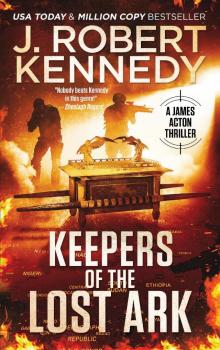 Keepers of the Lost Ark
Keepers of the Lost Ark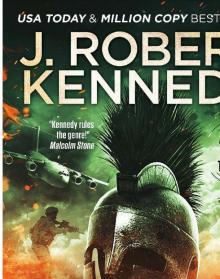 The Cylon Curse
The Cylon Curse The Colonel's Wife
The Colonel's Wife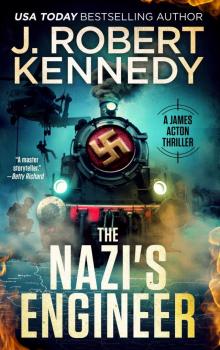 The Nazi's Engineer
The Nazi's Engineer Saint Peter's Soldiers (A James Acton Thriller, Book #14)
Saint Peter's Soldiers (A James Acton Thriller, Book #14)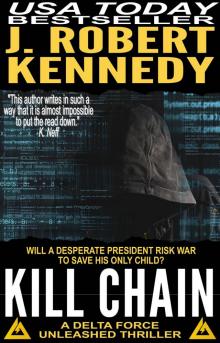 Kill Chain
Kill Chain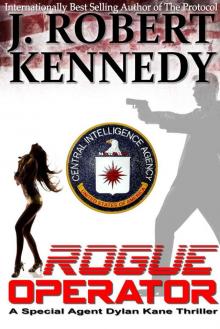 Rogue Operator
Rogue Operator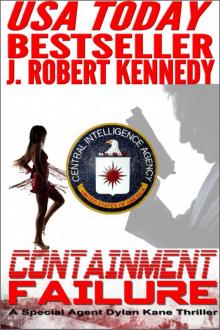 Containment Failure (A Special Agent Dylan Kane Thriller, Book #2)
Containment Failure (A Special Agent Dylan Kane Thriller, Book #2) The Lazarus Moment
The Lazarus Moment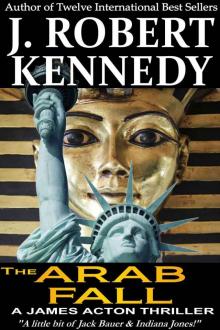 The Arab Fall (A James Acton Thriller, Book #6) (James Acton Thrillers)
The Arab Fall (A James Acton Thriller, Book #6) (James Acton Thrillers) Payback
Payback Flags of Sin - 05
Flags of Sin - 05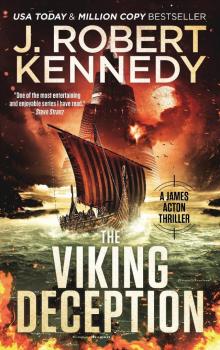 The Viking Deception
The Viking Deception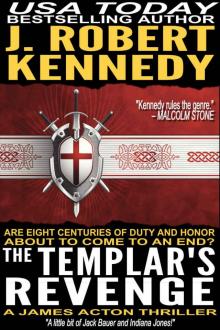 The Templar's Revenge (A James Acton Thriller, #19) (James Acton Thrillers)
The Templar's Revenge (A James Acton Thriller, #19) (James Acton Thrillers)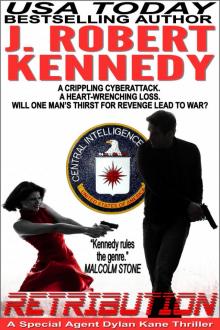 Retribution - A Special Agent Dylan Kane Thriller Book #7
Retribution - A Special Agent Dylan Kane Thriller Book #7 Tick Tock (A Detective Shakespeare Mystery, Book #2)
Tick Tock (A Detective Shakespeare Mystery, Book #2) Blood Relics (A James Acton Thriller, #12)
Blood Relics (A James Acton Thriller, #12)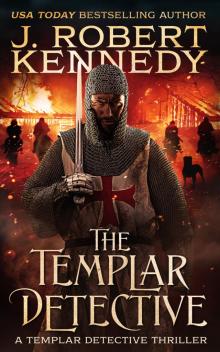 The Templar Detective
The Templar Detective Cold Warriors (A Special Agent Dylan Kane Thriller, Book #3)
Cold Warriors (A Special Agent Dylan Kane Thriller, Book #3)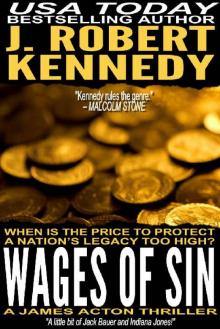 Wages of Sin (A James Acton Thriller, #17) (James Acton Thrillers)
Wages of Sin (A James Acton Thriller, #17) (James Acton Thrillers)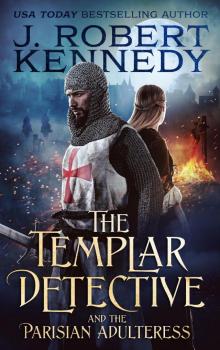 The Templar Detective and the Parisian Adulteress
The Templar Detective and the Parisian Adulteress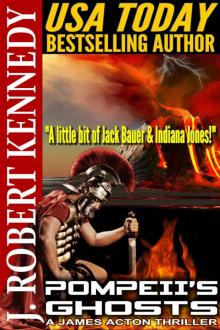 Pompeii's Ghosts (A James Acton Thriller, #9)
Pompeii's Ghosts (A James Acton Thriller, #9) Raging Sun (A James Acton Thriller, #16) (James Acton Thrillers)
Raging Sun (A James Acton Thriller, #16) (James Acton Thrillers)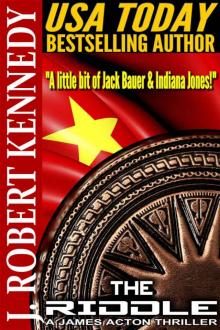 The Riddle (A James Acton Thriller, Book #11)
The Riddle (A James Acton Thriller, Book #11)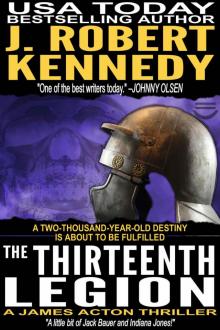 The Thirteenth Legion (A James Acton Thriller, #15) (James Acton Thrillers)
The Thirteenth Legion (A James Acton Thriller, #15) (James Acton Thrillers)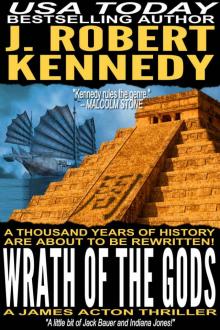 Wrath of the Gods (A James Acton Thriller, #18) (James Acton Thrillers)
Wrath of the Gods (A James Acton Thriller, #18) (James Acton Thrillers) Sins of the Titanic (A James Acton Thriller, #13)
Sins of the Titanic (A James Acton Thriller, #13) Amazon Burning (A James Acton Thriller, #10)
Amazon Burning (A James Acton Thriller, #10)